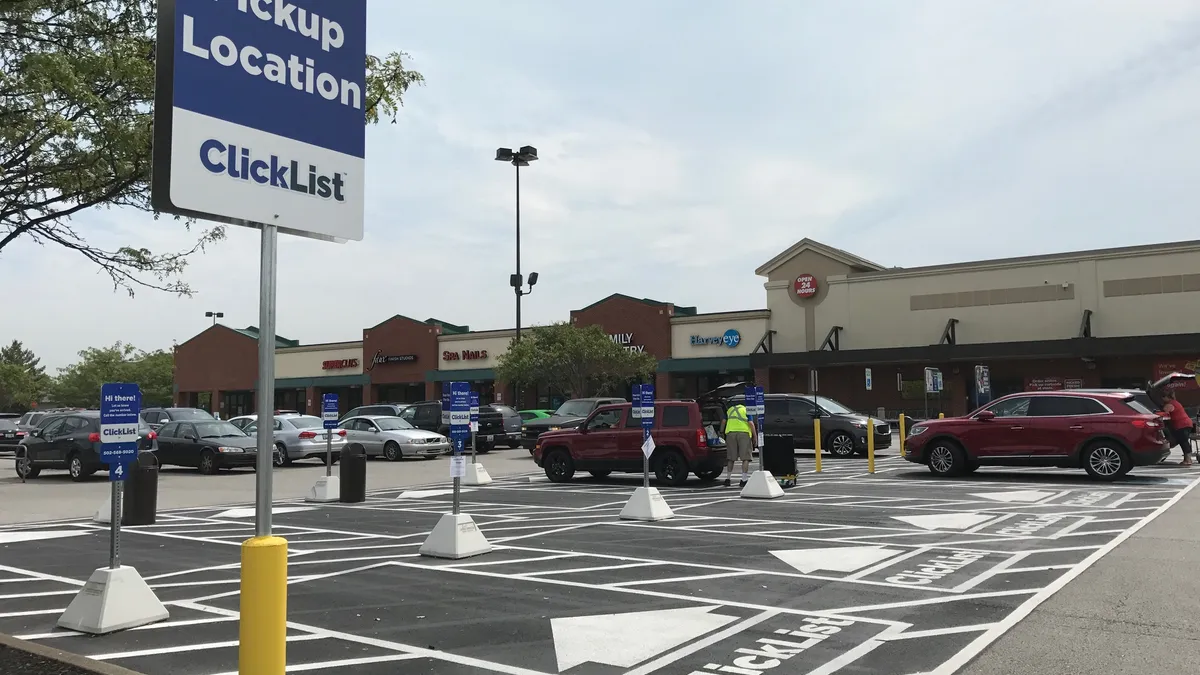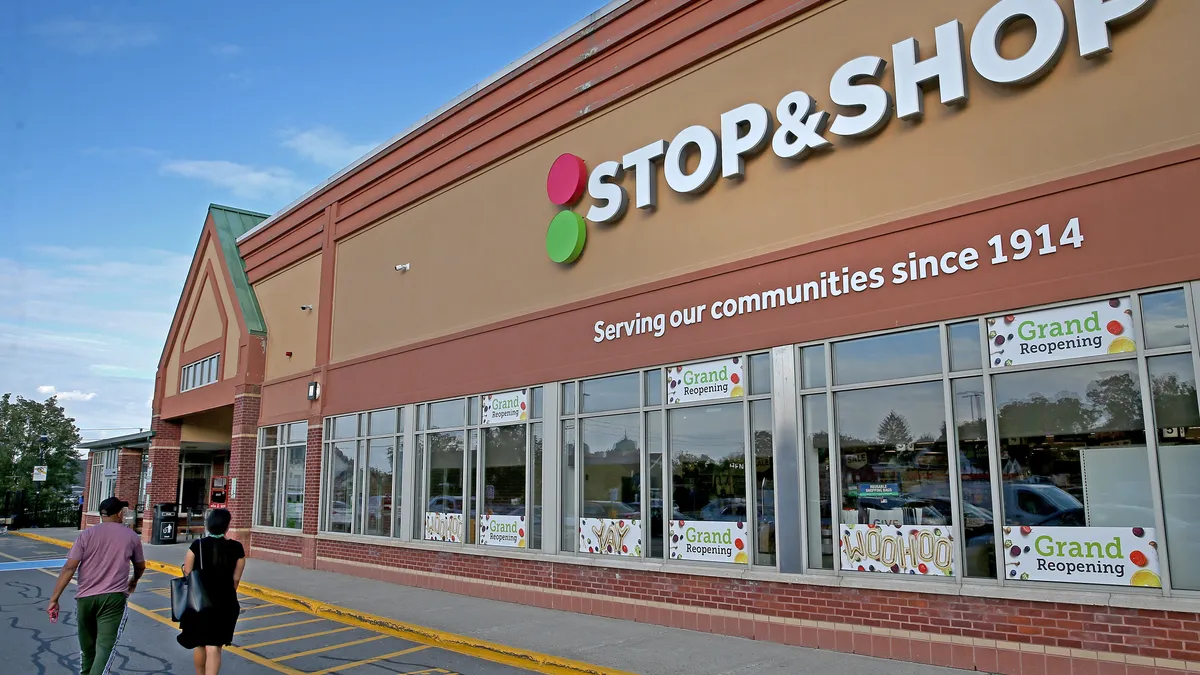Dive Brief:
- Kroger has launched a two-store pilot home delivery service in its hometown of Cincinnati, according to the Cincinnati Enquirer. The ClickList branded program will deliver orders to customers who live within eight miles of its Sharonsville and Whitewater Township stores for a $12 fee.
- A local service, Grocery Runners, will handle order delivery. The company has offered delivery of CickList orders since 2016, but until now has not had a formal relationship with Kroger.
- The grocer has offered delivery in the Denver market for more than a decade. Its Harris Teeter banner offers delivery through Shipt to stores in various North Carolina markets, and through Uber to stores in Virginia and Washington, D.C.
Dive Insight:
Kroger has dabbled in home delivery for more than 10 years and has yet to settle on a single model or partner provider. However, it hasn’t yet tested the service in its hometown of Cincinnati, and doing so could indicate the leading grocery chain is serious about finding a workable model for a broader rollout.
The company no doubt feels a sense of urgency considering many of its competitors — Publix, Wegmans and Meijer, to name a few — have signed on for home delivery with Instacart and Shipt. There’s been a flurry of activity since Amazon announced its $13.7 billion bid for Whole Foods, with many convinced the e-commerce giant will become a major disruptor in online grocery with 466 brick-and-mortar stores in its arsenal.
Kroger may also be feeling pressure from Walmart, which just expanded its delivery partnership with Uber, and is currently testing a model in which store employees drop off orders on their way home from work. The two retailers have traditionally served different customer segments, but Walmart’s recent store remodels, revamped product assortment and free order pickup — Kroger charges a $4.95 fee per ClickList order, by comparison — are helping the world’s largest retailer draw a wider pool of shoppers. In this year’s second financial quarter, Walmart reported its best grocery sales comps in five years, and a 60% increase in its e-commerce business.
Kroger certainly isn’t one to fall behind on promising opportunities. The grocer has been the all-important first to market with its ClickList store pickup service in cities and towns across the country, and continues to rapidly expand the program. Although e-commerce only makes up a small percentage of total sales now, reports show consumer interest and adoption is quickly increasing. A recent Gallup poll found that 9% of shoppers report shopping for groceries online at least once a month, and that usage is more or less evenly distributed across age groups and income levels.
Kroger is smart to lead with its click-and-collect service, which offers better returns than delivery. Considering the current inefficiency of last-mile fulfillment, Kroger’s delivery tests may remain a limited venture. However, as customer demand and innovation develops, a widespread rollout may become necessary.










